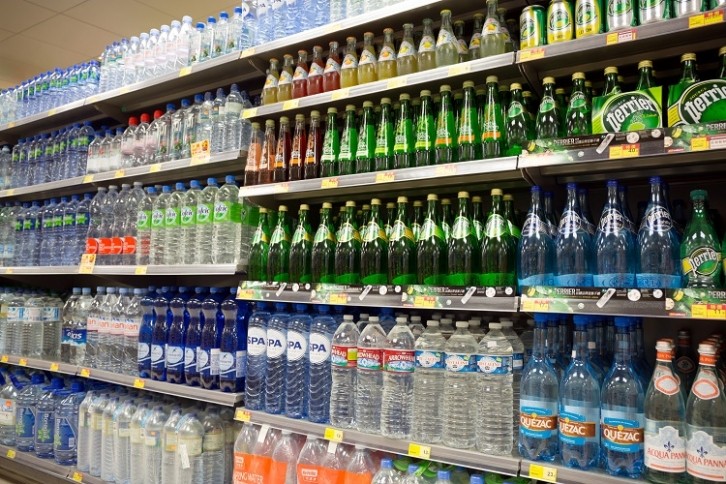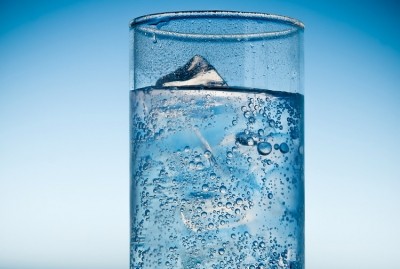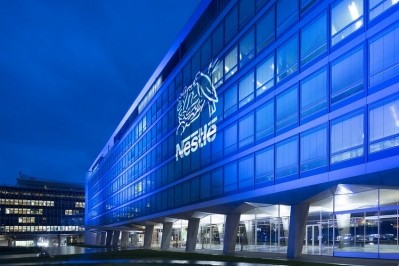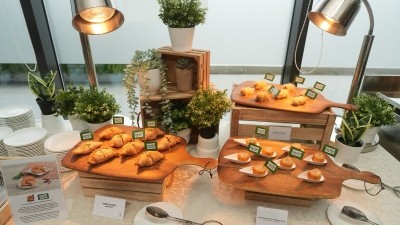Nestlé in hot water over Perrier and Vittel processing methods

Nestlé Waters is facing legal action in France over allegations it used unauthorised treatment methods for products marketed as natural mineral water.
Consumer watchdog foodwatch has filed a lawsuit against Nestlé’s bottled water division, which owns well-known brands Perrier, Vittel, Acqua Panna and San Pellegrino. Sources Alma, whose brands include Cristaline and Saint Antonin, is also in foodwatch’s firing line.
“Nestlé and Co. have deceived, ripped off and defrauded consumers,” claims international campaign director Ingrid Kragl. “The companies illegally treated contaminated water and sold ordinary tap water as high-quality mineral water.”
Not above board when selling natural mineral waters in Europe?
According to the Directive 2009/54/EC, ‘natural mineral water’ means microbiologically wholesome water.
It can be clearly distinguished from ordinary drinking water by its mineral content, trace elements or other constituents, and by its original purity. These characteristics are preserved intact because being sourced from underground, such water has been protected from all risk of pollution.
Only a few treatment processes are permitted in the production and processing of natural mineral water, but foodwatch is accusing Nestlé and Sources Alma of straying from the list.
And foodwatch is not the only one. The legal action comes after French media outlets Le Monde and Radio France claimed that at least a third of France-based ‘spring’ and ‘natural mineral water’ brands have used illegal purification techniques.
Nestlé Waters told Agence France-Presse (AFP) it informed French authorities in 2021 that it had used ultraviolet treatments and activated carbon filters – both banned in natural mineral water production – on some of its waters to maintain their food safety.
The brands concerned, Perrier, Vittel, Hépar and Contrex, are now all fully compliant, Nestlé Waters stressed.
Nestlé assures consumers the label matches the bottle contents
According to Nestlé, the banned processing methods were employed to ensure product safety. Nestlé France president Muriel Lienau told AFP filters can help remove chemical and microbiological elements that accumulate when water passes through groundwater or through factory pipes.
Nestlé’s focus on food safety was reiterated during the company’s 2023 results briefing last week. “We stressed this very important primary goal of food safety in all our publications around that issue and it is something I wanted to assure all consumers about,” said CEO Mark Schneider.
“I also wanted to stress and point out that the unique mineral content of our waters, that’s indicated on the water, [is] exactly what you’ll find in the bottle.”
Schneider continued: “We proactively approached the French government with this issue [and] worked very patiently under their guidance to address these issues.”
As to foodwatch’s lawsuit, Nestlé had yet to receive the details in full, but will ‘study’ that once in its hands. “We’ll keep you posted on any relevant development there,” the CEO told journalists.
Waters far from Nestlé’s best performing category
While Nestlé may be the world’s largest bottled water company, the water category is not the multinational’s top performer. In FY 2022, just 4% of the company’s sales was attributed to water, although organic sales growth was strong at 11%. Water was Nestlé’s second highest growth category behind PetCare at 14.5%.
While water posted double-digit growth, premium water recorded mid single-digit growth, with a sales decrease in the fourth quarter mainly due to temporary capacity constraints.
In FY 2023, PetCare continued to be the largest growth contributor at 12.1%, but water (which again attributed 4% in sales), had dropped to equal lowest growth performer at 4.9% alongside the prepared dishes & cooking aids category. Unlike in 2022, confectionery, powdered & liquid beverages, milk products & ice cream, and nutrition & health sciences all outperformed water in terms of organic sales growth.
Within water, some brands grew more than others. “Sales in water grew by 4.9% despite temporary capacity constraints for Perrier and a high base of comparison in 2022,” explained CFO François-Xavier Roger.























